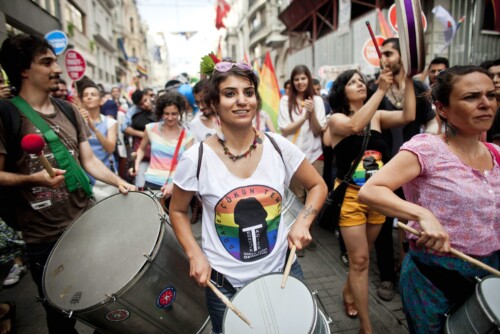In November 2007 Josephine Ho gave a public lecture at Barnard on sexual and economic justice. We reproduce the transcript and video below.
Professor Ho has been intensively involved in the burgeoning counterculture movements in Taiwan, and she has long insisted on the need to think about sex, culture, capital, and the state in her academic and activist work. She founded the Center for the Study of Sexualities at the National Central University in 1995, and she has written extensively on many cutting-edge issues in the Taiwanese context, spearheading sex-positive views on female sexuality, gender and sexuality education, queer studies, sex work studies and activism, transgenderism and, most recently, body modification. In 2003, a dozen conservative Christian NGOs brought a lawsuit against Ho and the Center, targeting her sexuality studies Internet databank. With the support of students, scholars, activist groups, and a widespread international petition, plus her own self-defense in court, Ho won the case. Her reflections on justice and the struggle to defend freedom of speech on sexual matters are hence particularly crucial to our conversations.
Ho’s talk centrally addresses youth sexuality, and the multiple challenges to young people’s sexual autonomy in East Asia. With middle class parents anxious over their inability to transfer class status to their children, Ho argues that parents and teachers are growing increasingly alarmed at the class implications of so-called deviance in gender and sexuality. The state, allied with conservative civil society groups, intervenes in this perceived site of crisis in the name of child protection, invoking a parental imaginary that aims to infantilize public spheres and forge a new social consensus about the asexuality of young people. She hereby calls upon us to question the attempts being made in many countries to purify social spaces of sexuality by treating all sex work as trafficking, all Internet sexual exchanges as predation, all adult publications dealing with sexuality as pornography—and to handle them all as criminal acts. As well as foregrounding concerns with themes of criminalization and economic/political crisis, Ho’s lecture also highlights the need for academics and activists to devoting more resources to nurturing sexual autonomy, particularly with regard to youth.
Transcript
Download the transcript (PDF)



